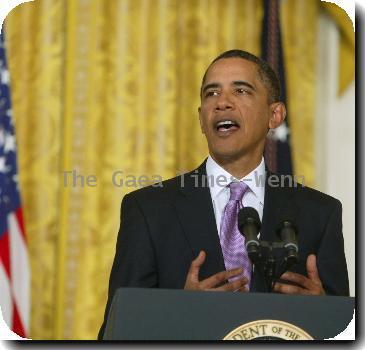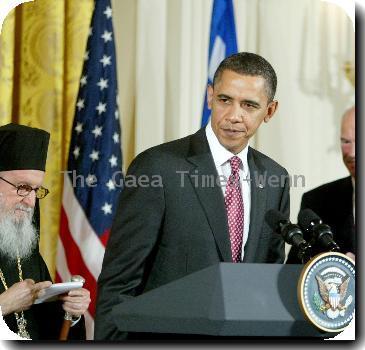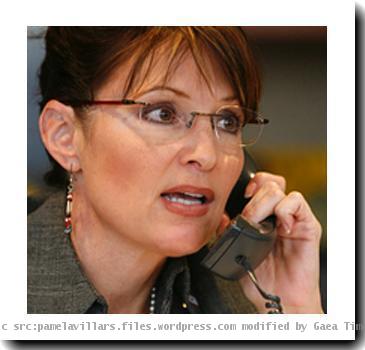Tea party favorite O’Donnell wins GOP Senate primary in Delaware; Ayotte takes NH nod
By Michael R. Blood, APWednesday, September 15, 2010
One for the establishment: Ayotte wins NH GOP nod
In the last turn of a tumultuous primary season, former New Hampshire Attorney General Kelly Ayotte narrowly won her state’s Republican Senate primary, to the relief of party officials in Washington who were struggling to adjust to the demise of their preferred candidate in another big race in Delaware.
Seven weeks before Election Day, Senate Republican leader Mitch McConnell said Wednesday that “turnout and enthusiasm are off the charts” across the nation and would benefit a resurgent GOP on Nov. 2.
But at the White House, spokesman Robert Gibbs said “intraparty Republican anger” — most recently evident in Christine O’Donnell’s defeat of veteran Rep. Michael Castle in Delaware — would help President Barack Obama’s Democratic allies in their quest to retain their majorities in Congress.
Republicans must pick up 40 seats to win control of the House. They need 10 to gain a Senate majority, and even prominent GOP strategists said O’Donnell’s victory would complicate their chances.
In a celebratory round of interviews, O’Donnell was having none of it.
“There are a lot of people who are rallying behind me who are frustrated that the Republican Party has lost its way,” she said. A primary winner on the strength of support from former Alaska Gov. Sarah Palin and tea party activists, she now enters the fall campaign as an underdog to Democrat Chris Coons.
A few hundred miles to the north, Ayotte was celebrating as well, after a closer-than-predicted race against Ovide Lamontagne and a crowded field of rivals. The secretary of state placed her victory margin at 1,667 votes out of more than 125,000 cast. Her Democratic opponent, Rep. Paul Hodes, was unopposed for his party’s nomination.
Lamontagne later conceded to his GOP rival.
Ayotte, 42 and making her first try for public office, enjoyed the support of party officials as well as Palin and overcame her rival’s claim that he was the real conservative in the race. Lamontagne had the backing of local tea party activists as well as Sen. Jim DeMint of South Carolina, who has become a force in GOP primaries this spring and summer.
Democrats conceded privately Ayotte would be a more difficult candidate in the general election than Lamontagne, and Hodes ran television ads this summer assailing her. The winner will succeed retiring Republican Sen. Judd Gregg.
Delaware was a far different story.
Republican officials had said while the votes were being counted Tuesday night that the party would not step in to fund O’Donnell’s campaign, and the National Republican Senatorial Committee initially greeted her victory with a brief statement issued in the name of an aide rather than the customary praise from Sen. John Cornyn, the Texan who heads the group.
But in a statement at midday, Cornyn said he had offered O’Donnell his personal congratulations and the organization would send her campaign a check for $42,000, the maximum it is allowed for expenses that may be officially coordinated with the candidates.
Cornyn was vague on whether the party committee would also launch the type of independent effort that is already under way in Kentucky and is reserved for the most competitive races. Such efforts can run into millions of dollars in states where the cost of television advertising is high.
The Senate primaries in New Hampshire and Delaware were the featured contests of the last hurrah of a turbulent primary season in which the political environment seemed to grow steadily more friendly to Republicans, despite a series of upsets sprung by tea party-backed challengers.
Castle, the veteran Republican defeated by O’Donnell, said through a spokeswoman he does not intend to support her in the fall.
“This is not a race we’re going to be able to win,” said Karl Rove, who was the principal political adviser to former President George W. Bush as well one of the leaders of a multimillion-dollar independent organization trying to fashion GOP majorities in Congress.
Responding to Rove, Palin told Fox News Channel on Wednesday: “My message to those who say that the GOP nominee is not electable are that they’re not even going to try: Well I say, ‘Buck up.’” She added: “It is time to put aside internal power grabs and greed and egos within the party, and to fight united for what’s right and beneficial for all Americans.”
On Wednesday, O’Donnell accused the party of “Republican cannibalism.”
“We have to rise above this nastiness and unify for the greater good, because there’s a lot of work to be done and there are a lot of people who want to get involved if the Republican Party would,” O’Donnell said in an interview with The Associated Press.
She said she hopes the party will unite to help her win in November, but added, “It is doable without the support of the Republican Party.” She also made the rounds of national television interviews.
Democratic National Committee chief Tim Kaine told NBC’s “Today” that O’Donnell’s win was good for Democrats and a further sign of a “civil war” in the Republican Party.
“That creates opportunities for us,” he said. “The O’Donnell win shows that moderate Republican voters are being forced from their party and will “have to look long and hard before supporting these candidates,” Kaine said.
Speaking Tuesday night at an Elks Lodge in Dover, Del., O’Donnell thanked Palin as well as the Tea Party Express, a California political committee that spent at least $237,000 to help her defeat Castle, a moderate and a fixture in Delaware politics for a generation.
Republican Party officials who saw Castle as their only hope for winning the Delaware seat once held by Vice President Joe Biden made their views clear. The state chairman, Tom Ross, had said O’Donnell “could not be elected dogcatcher,” and records surfaced during the campaign showing that the IRS had once slapped a lien against her and that her house had been headed for foreclosure. She also claimed — falsely — to have carried two of the state’s counties in a race against Biden six years ago.
In Minneapolis, former President Bill Clinton said the Republican Party was pushing out pragmatic voices in favor of candidates that make former President Bush “look like a liberal.”
Associated Press writers Randall Chase and Sarah Brumfield in Dover, Del., Michael Blood in Los Angeles, Jim Kuhnhenn in Washington and Becky Bohrer in Juneau, Alaska, contributed to this report.
Tags: 2010 United States General Election, Alaska, Barack Obama, Bill Clinton, California, Campaigns, Christine, Delaware, District Of Columbia, Events, General Elections, Kentucky, New Hampshire, North America, Political Endorsements, Political Organizations, Political Parties, Primary Elections, Sarah palin, State Elections, United States, United States General Election









